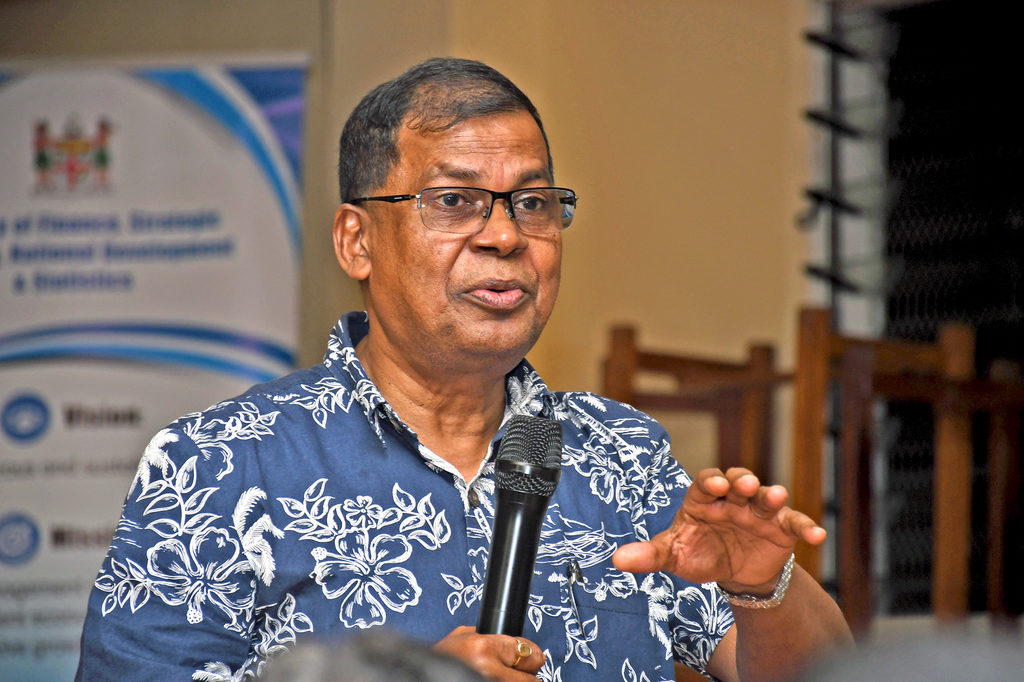THE high cost of living is an issue that continues to burden many Fijian families, says Deputy Prime Minister and Minister for Finance Professor Biman Prasad.
Speaking at the 2025 Nadi Business Forum last Friday, he said rising global commodity prices, geopolitical tensions, and supply chain disruptions had significantly affected the cost of essential goods and services.
“As a country that imports around 60 per cent of its consumer goods, Fiji is particularly vulnerable to these global shocks,” Mr Prasad said.
“To help ease these pressures, the Coalition Government has implemented several measures in the past two budgets, including, added prescribed medication to the list of zero-rated VAT items, introduced back to school support (paid around $130 million in 2023, 2024 and 2025 school years).
“Increased the social pension, 15 per cent increase for 65-70 years, while 25 per cent increase for 75 years and above.
“15 per cent increase in family assistance allowance, increase in minimum wages from $4 to $5, increase in civil service salaries (in the range of 8 per cent to 20 per cent), increased funding for transport allowance for students from $37 million to $60m, after the increase in student bus fares, forgiven over $650m in student debts and provided a funding of $4m in the FY2024-2025 Budget to reinstate the pension payment for pensioners that opted for a reduced pension rate following 2011 pension reforms.”
He said the private sector also had a critical role to play.
“Businesses must embrace fair pricing, enhance operational efficiencies, and adopt sustainable models of profitability.
“We cannot continue to protect industries through high import duties or limited competition if they exploit this protection to set unreasonable prices.
“There are industries where this is happening, and it must be addressed.”
He added in the next budget, the Government would explore further measures to alleviate cost-of-living pressures, especially those aimed at easing the financial burden on households.



